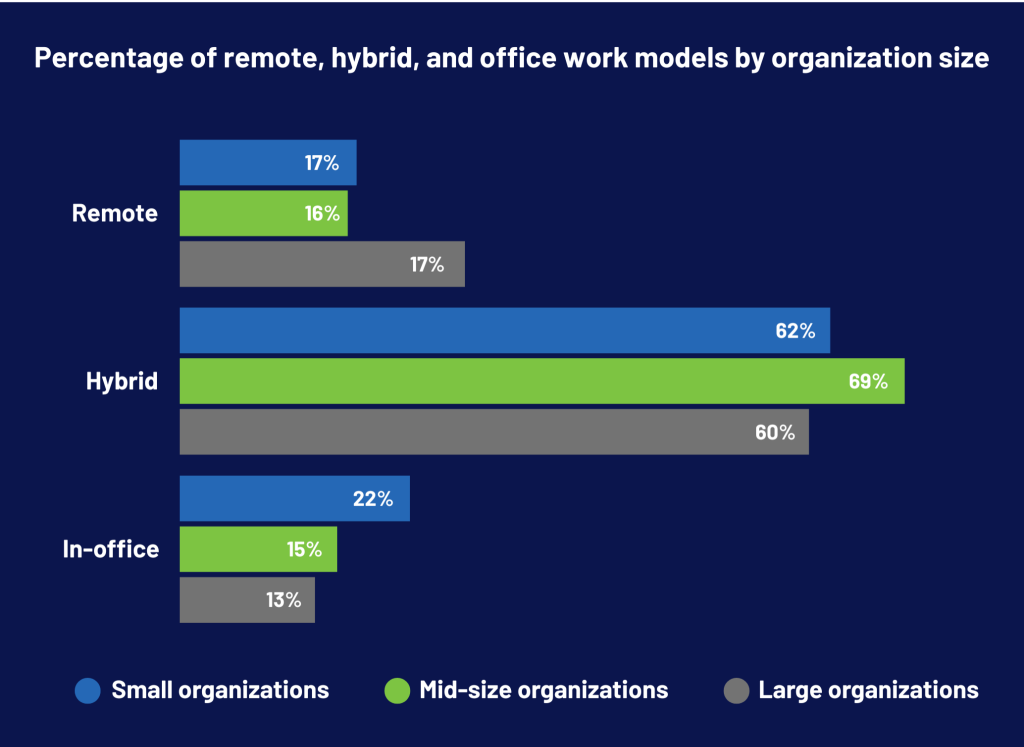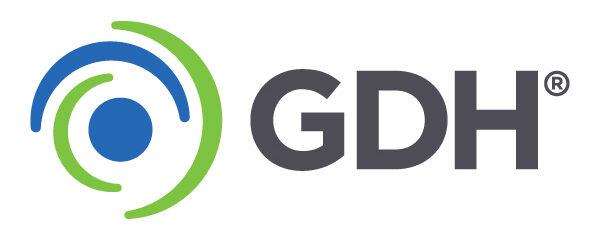How to Ask for Remote Work During Your Job Search
Key takeaways:
- Know how and when to ask. Time your remote work request during the interview process after establishing your value.
- Position your experience. Use your resume and cover letter to highlight success in remote IT tech jobs.
- Negotiate strategically. Focus on productivity and alignment when discussing flexible arrangements.
- Be prepared. Anticipate common questions about how you manage and thrive in remote roles.
What’s the Right Way to Ask About Remote Work in an Interview?
You’re an experienced IT professional with a strong resume—and now you’ve landed an interview for a role that seems like a perfect fit. But there’s one thing you’re still not sure about: Can this job be done remotely?
Bringing up remote work can be tricky, especially if the company doesn’t explicitly list it as an option. But with the right approach, you can raise the topic in a way that positions you as a results-driven candidate—not just someone looking for convenience.
Here are some tips.
- Start with fit. Focus the early part of your interview on showing that your skills align with the role and the company’s goals.
- Ask with intent. Once there’s mutual interest, bring it up directly but respectfully:
“Does the team support hybrid or remote work models?” - Focus on outcomes. Emphasize your goal is to deliver high-quality results—remote work is simply one way you’ve done that effectively in the past.

How Can I Highlight Remote Work Experience on My Resume?
Remote work is no longer a novelty in IT—it has become an operational norm. But hiring managers still want to see clear evidence that you can deliver in a virtual environment.
That means your resume and LinkedIn profile should speak directly to those skills.
Here’s how.
- Clarify the setup. Use job titles like Remote Software Engineer or Hybrid Network Administrator to eliminate ambiguity.
- Show your impact. Include metrics and examples: “Led remote DevOps team through cloud migration project, reducing infrastructure costs by 22%.”
- List tools and platforms. Demonstrate your fluency with software tools as well as collaboration platforms like Jira, GitHub, Zoom, and Slack.

When Should I Bring Up Remote Work During the Hiring Process?
The timing of your question about remote work is almost as important as how you ask it. Candidates often make the mistake of raising the issue too early—before they’ve shown what they can contribute.
If the company hasn’t clarified the work arrangement in the job posting, wait until you’ve had a chance to understand their needs and they’ve had a chance to understand your value.
Here’s what that means.
- Wait for mutual interest. Once you’re in a second-round interview or deeper into the process, it’s appropriate to raise the question.
- Look for signals. Watch for references to flexibility, autonomy, or global teams—these often suggest some openness to remote work.
- Frame it strategically. Link your question to past success: “I’ve consistently delivered strong results in a remote environment. How does this team typically approach flexible work?”

What If the Company Doesn’t Typically Offer Remote Options?
Not every company is fully remote-ready. In general, the larger the company, the more likely they are to offer remote or hybrid work options.

Source: Zoom, Navigating the Future of Work
However, while some teams still default to on-site work, that doesn’t mean flexibility is off the table—especially for IT professionals whose roles naturally support remote delivery.
These tips will help you make your case in an interview.
- Lead with value. Share specific ways remote work has enhanced your performance and supported team goals.
- Offer flexibility. Be willing to propose a phased or hybrid model that gives everyone time to evaluate fit.
- Use data. Point to measurable success in remote roles: “Our team improved system uptime by 15% while working fully remote across three time zones.”

How Do I Negotiate Remote Work as Part of an Offer?
If you’ve made it to the offer stage, the company wants you on board—which puts you in a strong position to explore remote work as part of the total compensation package.
Here’s how to do it.
- Start with the “why.” Explain how remote work supports your ability to meet and exceed job expectations.
- Propose structure. Offer specifics about how you’ll stay visible and engaged—such as regular virtual check-ins or monthly office visits.
- Stay aligned. Reinforce your enthusiasm for the role and your commitment to team success.

What Questions Should I Be Ready to Answer About Remote Work?
If you bring up remote work, be prepared for a deeper discussion. Hiring managers want to know you’re not only comfortable working off-site—but also structured, communicative, and engaged.
Be prepared for questions like these:
- How do you manage productivity remotely? Share your daily structure, time-blocking strategies, or the systems you use to prioritize work.
- How do you stay connected with your team? Talk about how you’ve led or contributed to virtual meetings and async collaboration.
- What challenges have you faced? Be honest—but end with how you’ve adapted and maintained performance.

How GDH Helps IT Professionals Find Remote and Hybrid Roles
At GDH, flexibility is built into our approach to IT staffing. We help professionals across the country find remote and hybrid roles that match their skills, goals, and preferred work environments.
Our deep network spans industries where remote work is the norm—like software development, cybersecurity, DevOps, and cloud infrastructure. We tailor job matching to each candidate’s preferences, ensuring the roles we present align with your desired schedule and setup.
Because we’ve staffed and managed fully remote teams for large-scale national projects, we know what it takes to succeed in distributed environments. From onboarding to communication, we support you every step of the way.
With decades of experience and a remote-first mindset, GDH is a trusted partner for IT professionals ready to thrive in flexible, high-impact roles.
Still have questions? Check out our frequently asked questions below to learn more.
Join the GDH talent network to access top tech opportunities, connect with hiring experts, and find roles that match your skills—and your work style.
Frequently Asked Questions About Remote IT Jobs
Can I negotiate remote work if it wasn’t mentioned in the job description?
Yes, but timing is key. Wait until you’ve demonstrated your fit for the role before raising the topic. Focus on how remote work supports productivity and aligns with team goals.
What’s the difference between hybrid and fully remote roles in IT?
Hybrid roles typically require onsite presence on set days or for key meetings, while fully remote roles allow you to work from anywhere. Understanding which model suits your work style will help guide your job search and negotiation strategy.
What are the most common remote IT job titles?
Common remote roles include Software Developer, Cloud Engineer, DevOps Engineer, Cybersecurity Analyst, IT Support Specialist, and Data Engineer.
How do I know if a company supports remote work culture?
Look for signals in job listings, employee reviews, and company values on their website. Companies that support remote work often highlight flexibility, asynchronous collaboration, and distributed teams.
Should I mention my preference for remote work in the cover letter?
It’s best to be subtle. Instead of stating a preference outright, highlight previous remote success and a commitment to results, which naturally opens the door for flexible work discussions.
What technical skills make me a stronger candidate for remote IT roles?
In addition to core technical skills, proficiency with collaboration tools like GitHub, Slack, Zoom, Jira, and cloud-based environments (AWS, Azure, GCP) can set you apart.
How can I stand out in a remote job interview?
Be ready to talk about how you manage time, solve problems independently, and collaborate across time zones. Share examples of past projects where you delivered results remotely to reinforce credibility.








